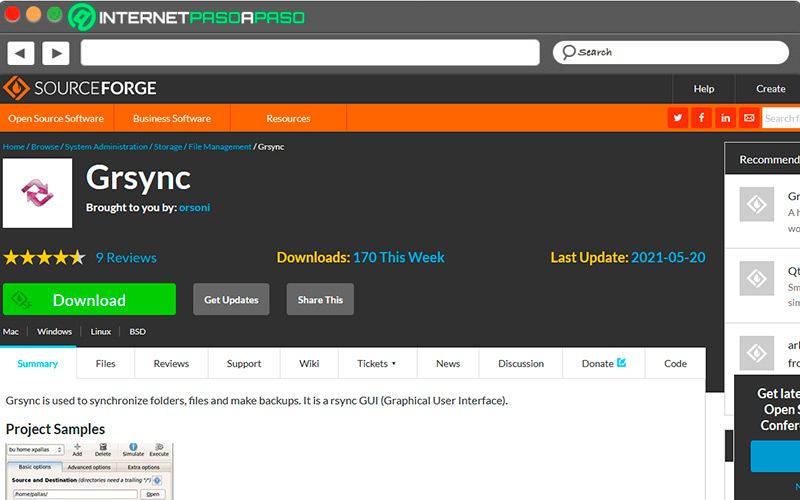
Grsync schedule linux install#
Replace rsync with a wrapper script that logs what it is doing then calls the real rsync.Ĭreate a file called /usr/bin/rsync.wrapper which contains: #!/bin/shĮxec /usr/bin/rsync.REAL install the wrapper: touch /var/tmp/my.rsync.log.The error message might appear in email (cron emails the owner of the job when something goes wrong) or in syslog. Remove the rsync command to force the backup to fail.If none of that works there are two "desperation mode" things you could do. Check those configurations by greping /etc recursively. If your system uses "systemd", there is a chance that it is being run from there.

It might be called "backup" or "update" or maybe it is named after the system the data is being pushed too or pulled from. That script name might not include the letters "rsync". However the cron job might be calling a script which calls rsync. You can look for rsync in those files by doing something like: grep rsync -R /etc /var/spool/cron The man page will help, as will doing something like find /etc /var -name '*cron*' Check the man page.) You can cat that file to examine it (it is a textfile.)Ĭron's configuration is stored in /etc or /var/spool/cron or both depending on your Unix/Linux system. (Some Unix/Linux systems put it in a different place. For example, I have an hourly cron job that updates a database, and a daily cron job that runs my backup scripts.)Ĭron (actually crond) keeps a log of all the commands ("jobs") that it runs in /var/log/cron. (cron is a system that periodically runs a command line or script. Some detective work will be required.Ī good bet is that rsync is being run from "cron" somewhere. Sadly rsync doesn't automatically log somewhere every time it is being used.


 0 kommentar(er)
0 kommentar(er)
